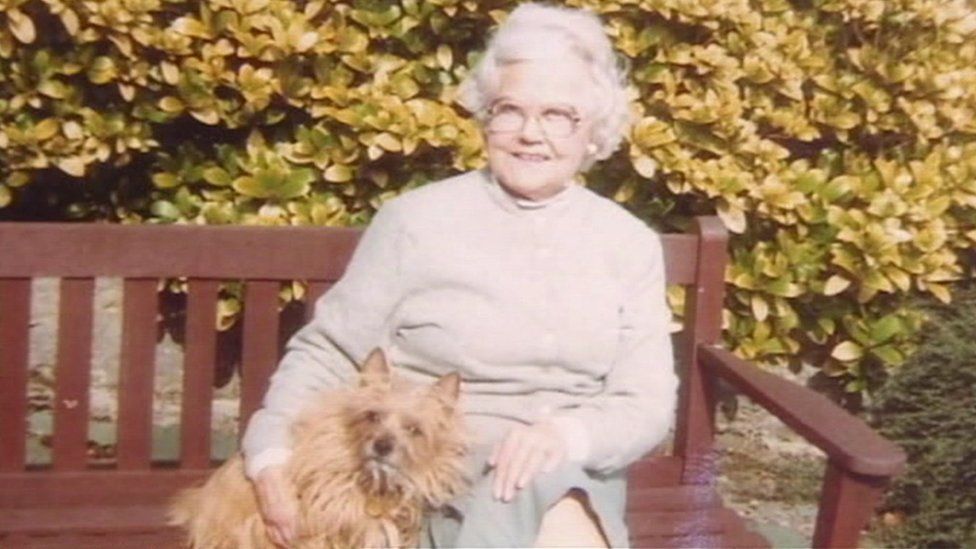
Mabel Leyshon was hard of hearing and failed to notice Mathew Hardman breaking into her home
By Chris Dearden
BBC Wales News
A vampire-obsessed killer convicted of murdering a woman is having his case reviewed by the organisation which investigates miscarriages of justice.
Mathew Hardman was 17 when he stabbed Mabel Leyshon in her home, removed her heart and drank her blood in 2001.
He always denied the murder. In 2003 he lost an attempt to appeal against his conviction.
The Criminal Cases Review Commission (CCRC) has confirmed it is looking into his case.
It was one of the most notorious murders in Wales this century, and described as “the most callous and brutal ever” by North Wales Police.
Mrs Leyshon’s body was found on 25 November 2001, when a meals-on-wheels volunteer visited her home at Lon Pant in Anglesey, north Wales.
The elderly widow was described as active and independent, and had been watching television in her favourite armchair the day before.
Pokers were found in the shape of a cross by Mrs Leyshon’s body
But with the sound turned up because of a hearing impairment, it meant that she was unaware Hardman – an art student from Llanfairpwll – had broken in through a lower window in her back door.
His murder trial at Mold Crown Court in 2002 heard that he stabbed her 22 times, then moved her body to another chair and placed two pokers in the shape of a cross at her feet.
Hardman removed her heart and put it in a saucepan wrapped in newspaper, placing the saucepan on a silver platter in a “macabre ritual”.
He then drained blood from Mrs Leyshon’s leg into the same saucepan and drank from it.
DNA evidence found at Mrs Leyshon’s home matched Hardman
The 14-day trial heard Hardman had been Mrs Leyshon’s paper boy, and was fascinated by vampires and wanted to become one in a quest for immortality.
The trial also heard that police found evidence reflecting his interest in vampires and the occult, including specialist magazines and online browsing of websites such as Vampire/Donor Alliance and The Vampire Rights Movement.
Two months before the murder, he had also begged a German exchange student to bite his neck in the belief she was a vampire and could transform him.
Hardman was found guilty after the jury was told DNA found at the murder scene matched blood found on a knife at his home.
His shoes also matched footprints found at Mrs Leyshon’s home.
Mathew Hardman was sentenced to life
Hardman was sentenced to life in prison in August 2002, but continued to maintain that he was innocent.
He applied for permission to appeal his conviction in 2003, but this was refused.
An application to be released on parole in 2014 was also turned down.
But a new application to the Criminal Cases Review Commission (CCRC), which investigates potential miscarriages of justice, is now being reviewed.
A CCRC spokesperson said: “An application has been received related to this case and a review is under way. It would be inappropriate for us to make further comment while this is taking place.”
The CCRC did not confirm whether it had been asked to look into Hardman’s conviction, his sentence, or some other part of the case.
It was also unable to say how long the review would take.
Related Topics
Related Internet Links
The BBC is not responsible for the content of external sites.








